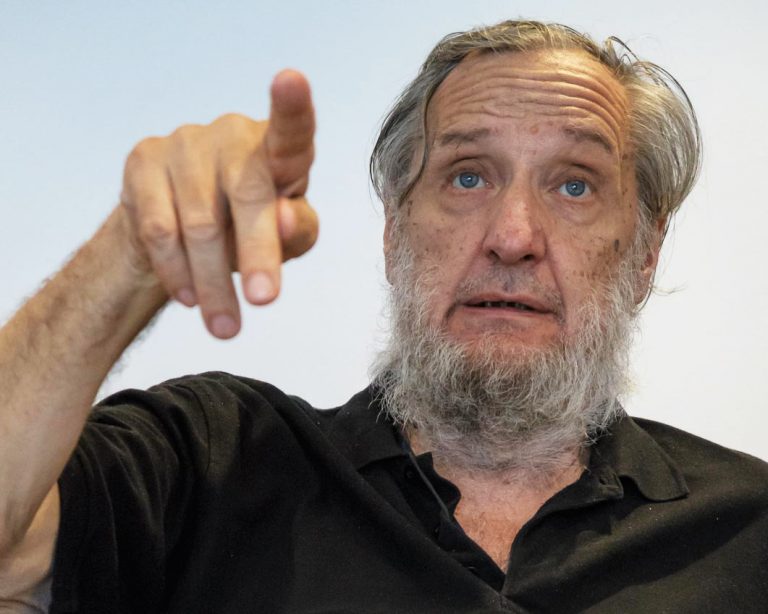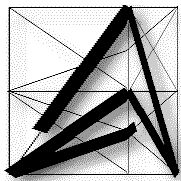
In memory of a dear colleague and friend, dr. Nenad Miščević
On Saturday, 11 May 2024, we had to bid goodbye to our esteemed colleague from the Department of Philosophy at the Faculty of Arts in Maribor, Prof. Nenad Miščević, PhD.
Nenad Miščević was born on 1 November 1950 in Zagreb, where he also studied philosophy and sociology. He continued his studies in philosophy first in Chicago with the famous Paul Ricoeur, and later in Paris with Jacques Derrida, where, despite the immense popularity of French post-structuralism, Dummett’s book on Frege inspired him to dive into analytic philosophy. He eventually obtained his PhD in Ljubljana under Professor Frane Jerman, who raised the first generation of analytic philosophers in Slovenia.
He entered the world of higher education as a teaching assistant at the Faculty of Medicine in Rijeka and continued his academic career at the Faculty of Philosophy in Zadar, where he moved soon afterwards and was promoted to full professor. During the war in Croatia, he retreated to Maribor to escape the victorious nationalist revanchism, where he assisted in launching and internationalizing the newly established Department of Philosophy. Under his mentorship, a whole generation of current members of the Department (Friderik Klampfer, Boris Vezjak, Janez Bregant and Smiljana Gartner) have completed their PhDs. He enabled them to enter the world of research and publications by giving them advice and guidance through his participation in international conferences. As President of the European Society of Analytic Philosophers and Philosophers (ESAP) during 1996–1999, he brought the first major international philosophy conference, ECAP, to Maribor in 1999, and in this way put the Maribor Department and its philosophy on the international map for good. As the long-time director of two international symposia at the IUC in Dubrovnik, on the philosophy of science and the philosophy of mind, and as a member of the organizing committee of the annual international philosophy conference in Bled, he insisted on holding annual student sessions and thus ensured the continuous international promotion of young researchers and postgraduate students. In his nearly half-century of academic work, he has mentored dozens of undergraduate, graduate, and doctoral students, with eight doctoral students at his home institution alone, to knowledge and formal completion of their studies.
Professor Miščević was undeniably one of the pioneers of analytic philosophy in Slovenia. Paradoxical as it may sound, and despite his Croatian-Serbian origin and Croatian passport, he was also one of the most important, if not the most important and influential Slovenian analytic philosophers. There can be no doubt about the far-reaching impact of his wide-ranging opus. This is evidenced not only by the enormous number of citations and editorships and memberships of the editorial boards of several prominent international scientific journals (Acta Analytica, Croatian Journal of Philosophy, Balkan Journal of Philosophy, Studies in East European Thought), but also by the two recently published collections of papers devoted to his work: Nenad Miščević – sva lica filozofije (Institute for Philosophy and Social Theory, Belgrade, 2012) and Thought Experiments Between Nature and Society: Festschrift for Nenad Miščević (Cambridge Scholars Publishing, Newcastle upon Tyne, 2017). He is also the most cited Croatian philosopher.
In his long and prolific career as a philosopher, he engaged, on an equal footing, with some of the most distinguished names in contemporary philosophy: Michael Dummett, Donald Davidson, Roderick Chisholm, John Searle, Michael Devitt, Georges Rey, Jim Brown, Timothy Williamson, Ernesto Sosa, etc. In addition to the Central European University (CEU) in Budapest, where he was a member of the Philosophy Department for a decade and a half, he also occasionally lectured as a visiting professor at the Universities of Rijeka (Croatia), Kingston, Ontario (Canada), Graz (Austria) and Geneva (Switzerland).
Professor Miščević’s published scientific works encompass 16 scientific monographs and 1 scholarly monograph, 37 book chapters, 98 original and 7 review articles, and an unprecedented number of technical and popular articles and book reviews. In the last four years alone, when his health was already beginning to fail, he published two scientific monographs with reputable foreign publishers, one on thought experiments, one of his favourite topics, and the other on curiosity, which, like Aristotle, he saw as a formative cognitive virtue for philosophy (and for sciences in general).
We can only guess how many of his publications are still unrecorded in databases, and how many articles are unfinished and stuck in drawers or computer folders because of his untimely death. In this respect, too, Professor Miščević was an atypical inhabitant of contemporary academia – he did not obsessively accumulate publications, strategically select journals according to impact factors, or accumulate points to create a fake impression on the philosophical community, university administrations, or research agencies. He was driven by genuine philosophical curiosity, the interest in the thing itself, by the joy of tackling and addressing the hardest philosophical problems. He cared little for academic honours, glamour, and prestige.
Even more fascinating than his incredible productivity was his remarkable breadth. In an age of specialization not only between, but also within scientific disciplines, Professor Miščević remained one of the few philosophical all-rounders. His research interests ranged from theoretical and practical philosophy to the history of philosophy. There is hardly a philosophical problem and/or discipline that has not attracted his interest at one time or another, and hardly a contemporary philosophical debate to which he has not contributed original ideas and insights: on the cognitive status of scientific and philosophical intuitions, thought experiments in science and philosophy, concepts and conceptual truths, the nature of the mental, cognitive naturalism, a priori cognition, moral and intellectual virtues, knowledge and wisdom, rationality in cognition and action, the ontological status of colours, pejoratives and derogatory terms, metaphors, the character and ontological status of moral and aesthetic qualities, aesthetic experience, war, nationalism and cosmopolitanism, populism and democracy. In Slovenia, he has worked in the fields of philosophy of mind, philosophy of psychology, cognitive theory, political philosophy, and philosophy of language. As one of the few philosophers who were educated in the continental tradition and later switched to the analytic tradition, he succeeded in bringing these two usually antagonistic philosophical traditions into a tolerant and fruitful dialogue in a series of high-profile articles.
Philosophy is generally considered to be a highly abstract scientific discipline that reflects on the most general and complex questions about the world and man’s position in it. Philosophical thinking, as thinking about thinking, is, according to this conception, supposed to have few immediate practical implications, and philosophers are supposed to be most comfortable in ivory towers, removed from the bustle of everyday life, immersed in deep but ultimately useless contemplations for ordinary mortals and their lives. Professor Miščević was living proof to the contrary. As the second Yugoslavia began to disintegrate and new states were created, as borders were established through wars, as entire regions were ethnically ‘cleansed’ and people removed through administrative interventions, questions and problems began to come to the fore that had long been swept under the carpet – human rights and freedoms, parliamentary democracy, private property, capitalism, individual and community identity, national belonging, ethnic minorities, nationalisms and patriotisms.
Professor Miščević has been deeply involved in public debates on these and related issues from the very beginning and has significantly enriched them with his extensive interdisciplinary knowledge and his incisive analytical mind. His long-standing efforts for greater social justice and his philosophical advocacy of the rights of social outcasts and minorities (in addition to two books and an encyclopaedic essay on nationalism) have given rise to a huge collection of regular weekly columns in Maribor’s Večer and Rijeka’s Novi List newspapers, of public appearances at round tables and podiums, and television and radio interviews, which still represent a model for clear, honest and reasoned public dialogue on the thorny issues of coexistence of people with different viewpoints, and an invaluable contribution to the popularization of philosophy.
Professor Miščević was a tireless animator, a dedicated professor, a tireless developer of ideas and proposals, a passionate debater, an engaged public intellectual, in a word, the embodiment of philosophical eros. He was renowned for his erudition (he could easily quote Dante in Italian or Aristotle in ancient Greek), his rich memories (of conversations with semi-mythological figures from the semi-prehistoric history of philosophy, Habermas in Korčula, personal visits to Ricoeur, seminars with Derrida, etc.), and at the same time, he dispelled the myth that analytic philosophers are not politically and socially engaged critical intellectuals. He was a truly Renaissance figure and a “legend”, as the students called him. Encountering him made a lasting mark on one’s life, and it was a privilege to be his colleague and friend.
We cannot believe that he will no longer greet us with his characteristic broad smile and a jovial “How are you?”, and then continue, full of life and plans, “I want to tell you that …”. He spoke several languages fluently, but he had his own peculiarities.
He will be sorely missed by colleagues and the wider philosophical community!
